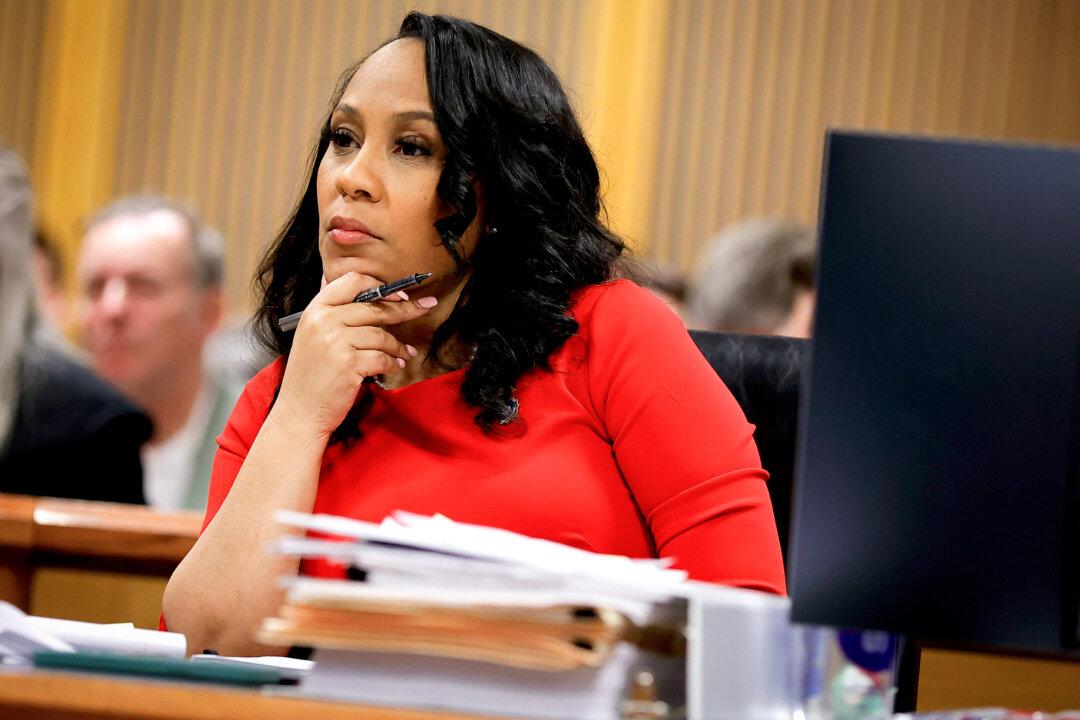The Fulton County Board of Ethics canceled hearing two complaints against Fulton County District Attorney Fani Willis on Thursday, stating it had no jurisdiction over the matter as Ms. Willis is a state officer.
“District Attorney Fani T. Willis is an elected state constitutional officer who is a part of the judicial branch of state government, as are all district attorneys,” the board stated on Thursday. “The District Attorney’s position and powers are defined and derived from Article 6 of the Georgia State Constitution.”





